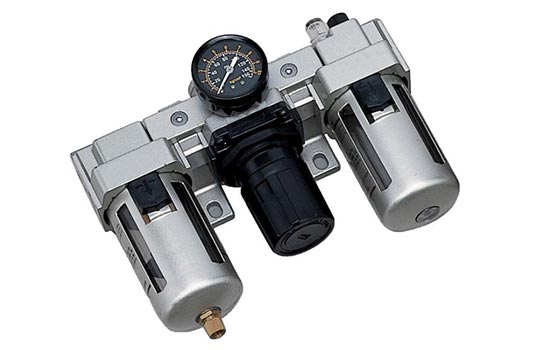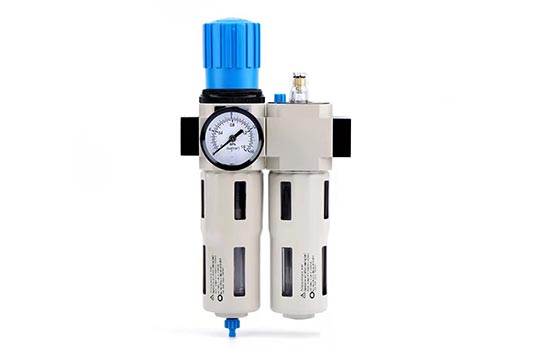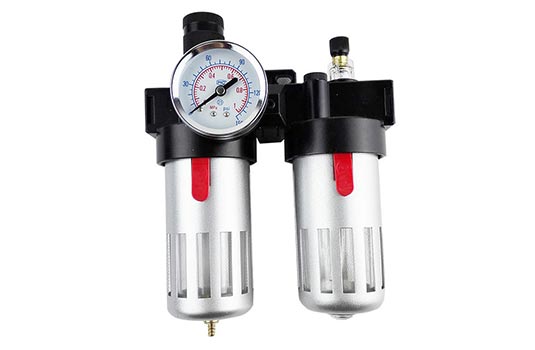Enhancing Indoor Air Quality with Filter Components Air Treatment
 Jan 29, 2024|
Jan 29, 2024| View:77
View:77In a bid to improve the quality of indoor air and create healthier living and working environments, the use of Filter Components Air Treatment has become increasingly prevalent. These vital components play a crucial role in air purification systems by effectively removing pollutants and particles, ensuring cleaner and healthier indoor air.
Filter Components Air Treatment, consisting of various types of filters, are designed to capture and eliminate airborne particles such as dust, pollen, bacteria, viruses, and other contaminants. By incorporating these components into air treatment systems, indoor air can be purified, creating an environment that promotes good health and well-being.
Mechanical filters, electronic filters, activated carbon filters, and ultraviolet germicidal lamps are among the commonly used types of filters. Each filter operates on different principles and offers varying levels of filtration efficiency.

Mechanical Filters
Working Principle: Mechanical filters use a fibrous mesh or grid structure to physically trap and filter airborne particles. As air passes through the filter, the mesh captures particles of varying sizes, including dust, pollen, pet dander, and larger contaminants.
Composition: Mechanical filters are typically made of materials such as fiberglass, pleated paper, or synthetic fibers arranged in a layered or folded configuration. The filter media is housed within a frame that provides structural support.
Electronic Filters
Working Principle: Electronic filters utilize an electrostatic charge to attract and capture particles. As air passes through the filter, the particles become charged and are then collected on oppositely charged plates or collector surfaces.
Composition: Electronic filters consist of a series of metal plates or collector surfaces that are electrically charged. These plates are typically made of materials like aluminum or stainless steel. The filter also includes an ionizing section that imparts an electrostatic charge to the particles.
Activated Carbon Filters
Working Principle: Activated carbon filters use a process called adsorption to remove gases, chemicals, and odors from the air. The activated carbon material has a high surface area, allowing it to attract and hold onto various volatile organic compounds (VOCs) and other impurities.
Ultraviolet Germicidal Lamps
Working Principle: Ultraviolet (UV) germicidal lamps emit short-wavelength UV-C radiation, which is effective in killing bacteria, viruses, and other microorganisms. When air passes through the lamp's UV-C rays, it disrupts the DNA and cellular structure of microorganisms, rendering them inactive.
Composition: Ultraviolet germicidal lamps consist of a UV-C emitting bulb or lamp, typically made of quartz or glass. The lamp is housed in a protective casing that allows air to pass through while shielding users from direct exposure to UV radiation.

How often do these filters need to be replaced or cleaned?
Mechanical Filters
Mechanical filters, such as fiberglass or pleated filters, are commonly used to capture dust, pollen, and other airborne particles.
Replacement Frequency: Mechanical filters typically need to be replaced every 1 to 3 months, although this can vary based on factors such as the level of airborne contaminants, indoor air quality goals, and the filter's efficiency rating. It is recommended to visually inspect the filter regularly and replace it when it appears dirty or clogged.
Electronic Filters
Electronic filters use an electrostatic charge to attract and capture particles. Unlike mechanical filters, these filters can be cleaned instead of being replaced.
Cleaning Frequency: Electronic filters can be cleaned rather than replaced. The frequency of cleaning depends on factors such as the accumulation of particles on the collector plates and the manufacturer's recommendations. It is generally advised to clean electronic filters every 3 to 6 months or as needed. Follow the manufacturer's instructions for proper cleaning techniques.
Activated Carbon Filters
Activated carbon filters are effective in adsorbing gases, chemicals, and odors from the air. However, their adsorption capacity diminishes over time.
Replacement Frequency: Activated carbon filters have a limited adsorption capacity, and their effectiveness reduces over time. The replacement frequency varies depending on factors such as the concentration of gases and chemicals in the environment. Typically, activated carbon filters are replaced every 6 to 12 months or as recommended by the manufacturer.
Ultraviolet Germicidal Lamps
Ultraviolet germicidal lamps emit UV-C radiation to kill bacteria, viruses, and other microorganisms.
Replacement Frequency: Ultraviolet germicidal lamps have a lifespan of approximately 9 to 12 months. After this period, the UV-C output diminishes, reducing the lamp's effectiveness in killing microorganisms. It is recommended to replace UV-C lamps annually or as specified by the manufacturer.
The significance of filter components cannot be overstated when it comes to maintaining good indoor air quality. These components effectively remove harmful substances, reduce the spread of allergens and pathogens, and promote a healthier and more comfortable living environment. Regular maintenance and replacement of filter components are essential to ensure their effective operation.
Filter Components Air Treatment is a vital part of air purification systems that effectively removes pollutants and particles, ensuring cleaner and healthier indoor air. Understanding the different types of filter components, their operating principles, and maintenance practices is crucial for ensuring the efficient operation of air treatment systems.







